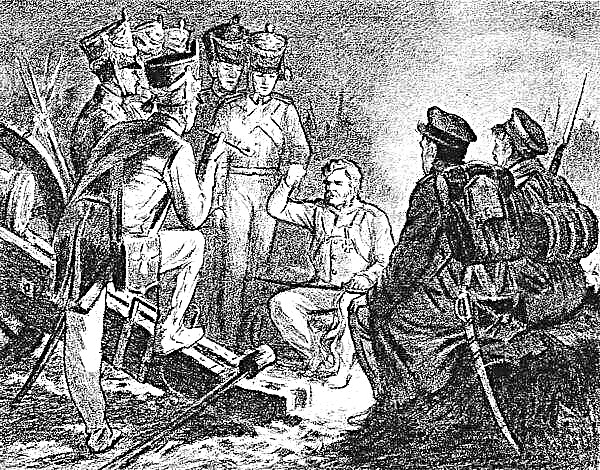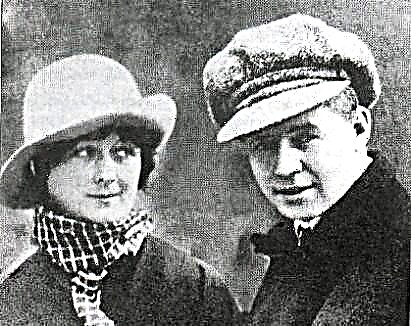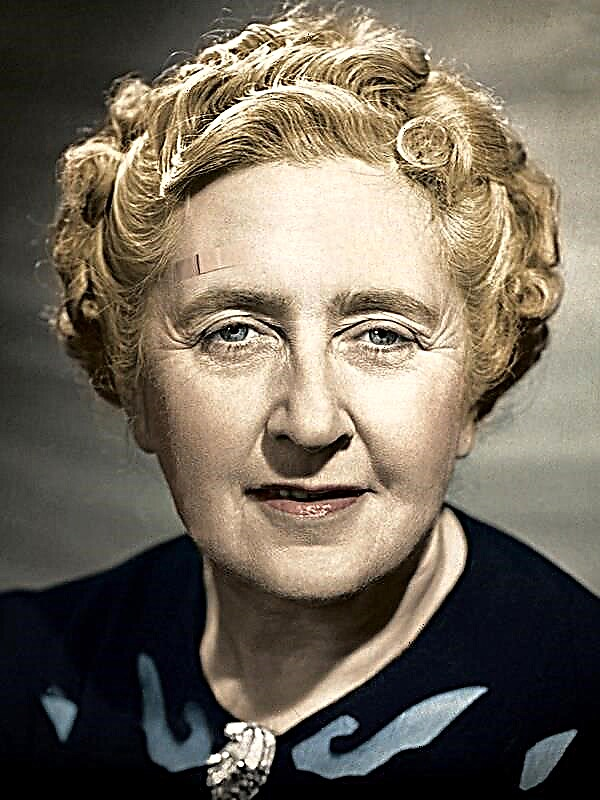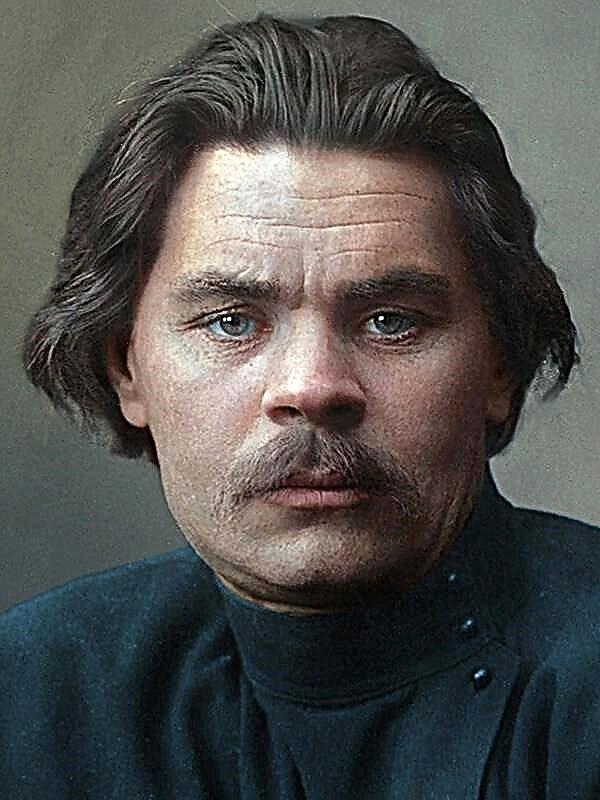The poetic arrangement of “The Adventures of Telemachus” by Fenelon in 24 books.
An Ancient Size Verse Singing the Favorable Son,
Coy, from the natural shores floated, and wandering for a long time,
We were everywhere with the Pallas Mentor in the form of:
Well, since he suffered from the angry Aphrodite,
For voluptuous sowing, comfort a disgrace with disgust;
But the Wisdom with him was hidden from him.
And returning to the house gave the birth to see.
The ship of Tilemachus is defeated, and he lands on the island of the goddess Calypse. Calypse favorably accepts the young man. Seeing his resemblance to Odysseus, for which she yearns, she realizes that in front of her is his son. Calypse asks Tilemach about his adventures, and he talks about his journey to the island of Pilon (Pylos) and Lacedaemon, how his ship was burned off the coast of the Sicelian (Sicilian), how he, along with the Mentor, helped king Akestiy , which in gratitude equipped the ship so that they could return to their homeland. Acestius sent along with them the Phoenician merchants who were supposed to land Tilemachus in Ithaca and bring the ship back to Acestius. But the sailors of Tsar Sesostrius, "then reigned in Nileote and fertile Egypt," seized the ship and took the captives to Egypt.
Tilemachus describes the beauty of the Egyptian land and the wisdom of its king. The mentor was sold by slave to Ethiopia, and Tilemach himself was forced to graze a herd in the desert of Oasia. Learning about the amazing deeds of Tilemach and making sure that there was no fault for the young man, Sesostrius promised to let him go to Ithaca, but the death of the king plunged Tilemach into new misadventures. He was imprisoned in a tower on the seashore; from there he saw a bloody battle in which the new king of Egypt - Vokhor - was killed by his subjects, rebelled and supported by the tyrants. When the successor of Vokhory gave the Tyrants captives, Tilemach with them was delivered by ship to Tire. On the way, Naarwal, commander of the Tyr fleet, told Tilemach about the power and might of the Phoenicians and their present sad fate. He warned Tilemachus against the cruel and extorted Tyrrhenian king Pygmalion:
But you oh! Tilemach, do not say anything to him,
What Tsarevich are you, and the Son of Tsar Odysseus:
He will hope that the Father, having returned to Ithaca,
A lot of gold will pay him atone for you,
Meanwhile, he will imprison you in a heinous dungeon.
Tilemach was already preparing to sail to Cyprus, when Pygmalion, finding out that the young man was not from Cyprus, ordered him to be captured. If it were not for the intercession of the concubine of Tsar Astarvey, who had sent the handsome Malakonia, who had neglected her love, to his death, Tilemach would have died.
With tears saying goodbye to the good Naarwal, Tilemachus sailed to Cyprus to return to Ithaca from there. On the way from Tire to Cyprus, Tilemach dreamed of Aphrodite and Eros, from whose arrow he was protected by Pallas, then he dreamed of a Mentor who persuaded him to flee from Cyprus. Tilemach's companions got drunk; a storm came and if Tilemach had not stood at the helm, she would have sunk the ship. Arriving in Cyprus, Tilemachus met there with a Mentor, sold as a slave to the Syrian Hazael. Hazael put both Greeks on his ship and drove to Crete. During this voyage, they saw the sea goddess Amphitrite on a chariot made of conha (mother of pearl shell) and harnessed by sea white horses.
Arriving in Crete, Tilemach found out that the Cretan king of Idomeneo vowed to sacrifice to the god Posidon the first person he would meet on the shore for his salvation from the storm. This man was his son. Idomeneo fulfilled the vow and killed the young man, for which the Cretans expelled him from the island. They wanted to elect Tielemach as their king, but he refused in order to return to Ithaca. The mentor also abandoned the diadem and advised the Cretans to elect Aristodim as king. When Tilemachus and the Mentor boarded the ship and sailed off the coast of Crete, the hostile Aphrodite was angry with Tilemachus, and Posidon sent her a storm of comfort to her. The ship sank, and Tilemach and Mentor, clinging to a fragment of the mast, escaped and ended up on the island of Calypsa.
After listening to the story of Tilemach about his adventures, Calypse tries to keep him on his island and awaken love in him. However, Tilemachus is imbued with love for the nymph Eucharite, which causes at first jealousy, and then the wrath of Calypse. On the advice of Eros, the nymphs burn a ship built by the Mentor to sail to Ithaca, and Tilemah secretly rejoices in this. Seeing this, the Mentor pushes Thielemach from a cliff into the sea and jumps after him to reach the swim of another ship, standing near the coast. Tilemach finally understands:
Vice defeated tokmo
Escaping one from him, and the other we will not defeat everyone is.
He says:
I’m no longer afraid of the Sea, the Winds, or the Storm:
My only passions are terrible to me.
For love and one, love that is dishonorable,
There are worse than all of the cumulative Sea Drowns.
Tilemachus and the Mentor go ashore of the Phoenician ship commanded by the brother of Naarwal Adoam. The ship heads to Ypir. Adoam tells Tilemach about the tragic death of Pygmalion and Astarvey and the accession to the throne of the son of Pygmalion Valeazar, whom his father expelled at the instigation of his wife. Valeazar wisely rules Tyrus and asks for advice from Naarwal in everything. Adoam gives a feast in honor of Tilemach and Mentor, during which, with his singing, Achita draws tritons, Nereids, and other divine obedience to Posidon. The mentor also takes the lyre and begins to play "tinkling only tenderly and sweetly" that Ahito drops her lyre with envy. Adoam talks about the beauties of Vetika (Betika) and its people, and Tilemach rejoices that "there is a People still in the Universe, / Coy, by Nature right, was only kind and happy." Aphrodite, annoyed at Tilemach, asks Zeus to send him death, but Zeus only agrees to extend Tilemach’s difficult work and keep him away from his home.
Posidon sends enchantment to the helmsman of the Phoenician ship, and he instead of Ithaca swims in full sail to the haven of Salantins. Their king Idomeneus, who is at war with the Manturians, makes a sacrifice to Zeus. The priest, having examined the womb of slaughtered animals, predicts to Idomeneo that, thanks to Tilemachus and the Mentor, his aspirations will come true. Finding out the reasons for the feud between the Salantins and the Manturians, Tilemachus and the Mentor release the Phoenician ship and remain in Salanta. When the Manturians and their allies Nestor, Filoctitus and the Falant come under the walls of the city, the Mentor leaves him and goes to them with a proposal of peace. Tilemach joins him and helps persuade the Manturians to make peace with the Salantis. After the conclusion of peace, former enemies enter Salanth and offer a common sacrifice with Idomeneos to confirm the union.
Nestor, on behalf of the allies, asks Idomeneo for help in the war against the old. The mentor, who wants to improve Salant and to bring the people to agriculture, convinces Idomeneo to send a hundred young Cretans to help them and put Tilemach at their head.
"All the Allied Kings went from Salant to that / are satisfied with Idomeneo and are overwhelmed with the Mentor." Upon leaving Tilemaha, the Mentor forces Idomeneo to enact new regulations for the merchants and for the urban order, divide the people into seven parts, which must wear different clothes depending on gender and degree, and finally prohibit luxury and useless art. On his advice, Idomeneo shares all the idle lands between useless artists, so that they engage in agriculture. Idomeneo tells the Mentor how Protesilaus deceived his trust and, with his intrigues, turned him away from the wise and virtuous Philocles, who had left for Samon (Samos) and leads a solitary and wretched life there. The mentor forces Idomeneo to ban Protesilaus and his libel, Timocrates, to Samon, and return Philocles to Salant. Friend Philocles Igesippus happily goes after him, but Philocles does not want to return. Only after learning that this is the will of the gods, he boarded the ship and sailed to Salant, where Idomeneus affectionately met him. Philocles becomes a close friend of the Mentor.
Tilemach by his valor seeks the favor of the elderly leaders. Nestor, who knew him before and always loved his father Odysseus, treats him like a son. Even Philoctite, who hates Odysseus, is gradually imbued with confidence in Thielemachus. Filoctitus tells the young man about the disastrous consequences of love by the example of the tragic death of Heraclius (Hercules) from the poisoned shirt that the centaur Niss gave Diyyanira. He tells how he received fatal arrows from this hero, without which it was impossible to take Troy, how he was punished for divulging the mystery of the death of Heraclius by misadventures on the island of Limna, finally, how Odysseus sent Neoptolem to Philoctite and he persuaded him to go under the besieged Troy, where his sons The Asclepies healed him of his wounds.
Tilemachus enters into a feud with the Lacedaemon commander Phantom because of the prisoners of old. The brother of Falant Hyppius autocratically takes the captives, Tilemachus fights with him and wins. Having learned that the Allied kings are busy only with the reconciliation of Tilemach with Hyppius, the long-time king Adrasg suddenly attacks them. He captures one hundred of their ships and brings his army to their camp, taking advantage of the fact that the allies at first take the enemy army for reinforcements. Having gone ashore, the Adrasg warriors set fire to the camp of the allies and attack the Falant warriors. The regiments of Falant flee, Hippias perishes from arrows fired by Adrasg, the Falant himself is seriously wounded. Learning about this, Tilemah, putting on the armor given to him by Pallas, and taking instead of the usual shield Egid, hurries to help the Phantom. Having attacked the Davians from the rear, he crowds out the enemies, kills the youngest son of Adrasg Iphicius, and only a thunderstorm prevents him from gaining a decisive victory over the Davians. Tilemach takes care of the wounded, especially the Phalantes, solemnly burns the body of Hippias and brings the ashes of his brother to the Phalant in a golden urn.
Tilemach saw many times in a dream that Odysseus was no longer on earth. He decides to go down to the underground Tartarus to look for his father there. Tilemach leaves the camp and goes to the cave, from where he falls on the shore of Acheront. Charon puts him in his boat and brings him to Pluto. Tilemach circumvents the whole of Tartarus, where he sees the torment of ungrateful people, oath-criminals, hypocrites and evil kings. Tilemachus comes to the Ilisian fields, where he meets his great-grandfather Arkisius, who tells him that Odysseus is alive and that Tilemachus will see him in Ithaca. Arkisius describes to him the bliss that righteous people enjoy, especially good kings. He instructs Tilemach and tells him that virtuous life is more pleasing to the gods than military glory.
Tilemach says goodbye to Arkisius and returns to the camp of the Allies. The leaders gather for advice, and Tilemach convinces them not to attack the city of Venusia, which is pledged by the Lukanians, and not to answer Adrast with treachery to treachery. In the battle with the army of the Old Ones, Tilemach is everywhere looking for Adrasg, “But looking for one, he sends a lot of mortals to the shade,” Adrast also searches for Tilemach. He meets Nestor and wants to kill the elder, but kills his son Pisistratus, "Coy, for his part, was standing bravely at the Battle, / Yes, to remove his own from the Parent extreme distress." Finally, Tilemachus enters the battle with Adrasg and defeats him, but Adrast “does his best to make Tilemach feel sorry for the heart,” and Tilemakh saves his life, but the cunning Adrast throws a club hidden under the dress at Tilemakh. Divine armor protects Tilemach from death, and he pierces Adrast with a sword.
After the death of Adrast, the Old Ones extended their hands to the Allies in peace, asking only that they be allowed to choose a king from their people. The leaders who gathered for advice want to divide the lands of the Old Ones among themselves and offer Tilemakh fertile Arpian land, but Tilemach refuses it and advises giving it to the unfortunate Aetolian king Diomede, who is everywhere pursued by the revenge of Aphrodite. Tilemachus persuades the Allies to leave their land to the Toilers and to make them king of the brave and wise long-timed Polydam. The feuds are over, and everyone is returning to their lands.
Tilemach arrives at Salant. He is upset when he sees that the fields and arable lands are cultivated, but in the city there are fewer artists and less “Velepia.” Idomeneo meets Tilemach as a son. The mentor explains to the young man the reasons for the changes in the state and instructs him:
Remember about Tilem! what is this purely Tokmo
It is pernicious in the Government over the Peoples in the World,
Why read and do not try to fix a lot.
First: The power in the Kings is unrighteous, and the former:
That the second, that Luxury harms Good morals.
Tilemach tells the Mentor that he loves the daughter of King Idomeneo Antiope and would like to marry her, but he knows that he must hurry to Ithaca, so he did not say a word about his inclination to either Antiope or her parent. The mentor approves Tilemach’s choice and says that Antiope is destined for him by the gods, but he must wait and swim as soon as possible to Ithaca to see Odysseus.
Idomenei is trying to detain Mentor and Tilemachus. He asks the Mentor to help him in solving difficult cases, but the Mentor gives him advice on what to do, and he himself prepares to leave with Tilemakh. Idomeney, seeing Tilemach’s penchant for Antiope, arranges animal fishing, where Tilemach rescues Antiope from the boar. Tilemachus is sorry to part with Angiope and Idomeneo, but he overcomes himself and, together with the Mentor, enters the ship and sets sail for Ithaca. During the voyage, the Mentor explains to Tilemach the principles of wise government, teaches him to understand people. The wind subsides, and they cling to a certain island, off the coast of which there is a Theakian ship. Tilemach meets a lonely old man on the island, not knowing that it is Odysseus. Tilemach asks about the stranger of the Theakian sailors, and they say that the old man's name is Cleomenes. When a stranger sets sail on a Theakian ship, Tilemach cannot hold back his tears. The mentor explains to the young man that the voice of nature speaks in him: this stranger is none other than Odysseus. Tilemach is upset that the Mentor has not told him this before. The mentor replies that the gods teach the youth of patience - "all-endurance / Of the Virtues of all these Virtues, which / Must be the essence of the once Lords to the People are sovereign." Just before the departure, the Mentor, in order to test Tilemach’s patience, tells him to linger and offer sacrifice to Pallas. Tilemach obediently obeys the Mentor's command. Pallas appears to Tilemahu in his divine form, gives him the last instructions and ascends to heaven. Tilemach urges his companions to set sail for Ithaca as soon as possible. Arriving there, he "saw his Father there with faithful Eumea."












